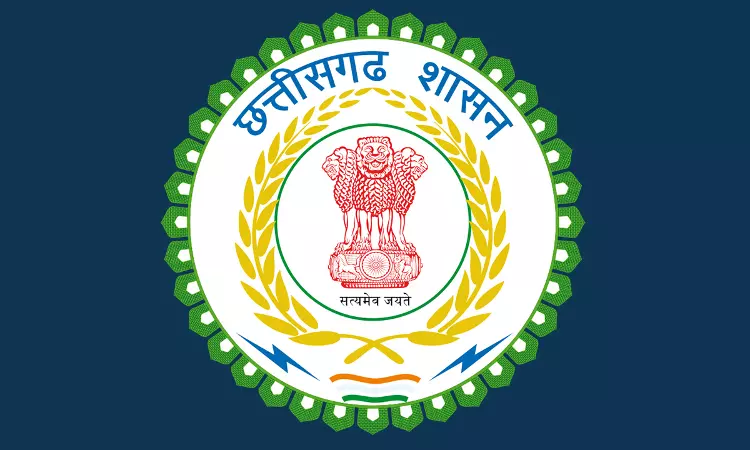Evaluating Chhattisgarh’s Policy On Candidates With Pending Charges: Addressing Violence Against Women Or Raising Questions Of Justice?
Ana Khan
18 Sept 2023 11:21 AM IST

On the 11th of September, 2023, the Government of Chhattisgarh issued an Order vide. 1-1/2017/1-3[1] under the Chhattisgarh Civil Services (General Conditions of Service) Rule, 1961. This order bars such candidates for appointment in Government services who are facing the charges of certain provisions of the Indian Penal Code, 1860, pertaining to offences against women, or if they are facing any charges under the Protection of Children Against Sexual Offences (POCSO) Act, 2012, while such cases are pending before the court of law.The aim is to ascertain whether the Order represents a step towards addressing the issue of violence against women in society or rather stands as an ineffectual attempt in addressing the issue.
The “Order” in violation of the Fundamental Legal Principle of Criminal Law
The Chhattisgarh Govt. Order contravenes a fundamental tenet of criminal law, namely, “presumption of innocence until proven guilty”. This principle holds that allowing the guilty to go free is better than convicting an innocent person[2]. The principle holds immense value in protecting the fundamental liberty and human dignity of the accused person and preventing the societal backlash of the accused during the legal process. Rule 6, sub-rule 4 of the CG Rules[3] runs counter to this principle as it presupposes the guilt of the accused by suspending their appointment until the final decision of the court is delivered. Furthermore, according to the National Crime Records Bureau (NCRB) data 2020, Chhattisgarh displayed a mere 37.5% conviction rate in the “Crime Against Women” category[4], thereby placing the Order in a position to potentially inflict mental agony, harassment, financial loss, and societal stigma upon the candidates who are eventually acquitted.
Cherry-picking the offences and addressing the ambiguity within the “Order”
The Order bars the candidates from Government Service appointments when they are facing specific charges under the Indian Penal Code, 1860, including Section(s) 354, 376, 376A, 376B, 376C, 376D, 509, 496, 498. Notably absent from the Order are references to Offences introduced by the Criminal Law (Amendment) Act of 2013, such as Section 354A (Sexual Harassment), Section 354 B (Assault or use of criminal force to woman with intent to disrobe), Section 354 C (Voyeurism), and Section 354D (Stalking). Additionally, aggravated forms of rape introduced by the Criminal Law (Amendment) Act, 2018, which encompass gang rape of minors aged under 12 and 16 years (Section 376 AB & Section 376 DA) and Section 376 F (liability of the person-in-charge of the workplace to give information about the offence under Section 376 or Section 376D), as inserted by the Chhattisgarh State Amendment, remains unaddressed in the Order.
It is worth noting that Section 496 of the IPC, as mentioned in the Order is a gender-neutral offence concerning fraudulent marriage ceremonies, yet it is categorically included under the heading of “offence of molestation of girls and women” in the Order.
In addition to IPC provisions, the Order extends its prohibition to candidates facing pending cases under the Protection of Children Against Sexual Offences (POCSO) Act, 2012. However, the Parliament of India has enacted specialized legislation for the protection of women, such as the Sexual Harassment of Women at Workplace (Prevention, Prohibition & Redressal) Act, 2013, and Indecent Representation of Women Act, 2008, which could arguably merit inclusion in the said Order, given their relevance to the issues concerning the women.
Furthermore, the Order uses the term “final decision of the Court” without specifying which authority’s final decision in the tier of the judicial hierarchy- Sessions Court, High Court, Supreme Court, should be considered “final”, thus leaving room for ambiguity.
The Order’s disregard for the presumption of innocence principle poses a substantial challenge to the preservation of individual liberties and the citizens' right to practice any profession of their choice under Article 19(1)(g) of the Constitution of India. Moreover, the state’s low conviction rate in the category of “crime against women” further underscores the unwarranted harm and hardships on the individuals who may ultimately be acquitted.
The policy action must be grounded in legitimacy, necessity, and proportionality for the greater public welfare. The state bears the onus of demonstrating that encroachments upon the fundamental rights of individuals occur only in exceptional circumstances and respects the principles of criminal law, ensuring equitable treatment to all its citizens.
Views are personal.
[1] https://x.com/ChhattisgarhCMO/status/1701169871931728011?s=20
[2] Victor Tadros & Stephen Tierney, The Presumption of Innocence and the Human Rights Act, 67(3) Mod. L. Rev. 402 (2004).
[3] https://x.com/ChhattisgarhCMO/status/1701169871931728011?s=20
[4]https://ncrb.gov.in/sites/default/files/crime_in_india_table_additional_table_chapter_reports/TABLE%203A.8.pdf


